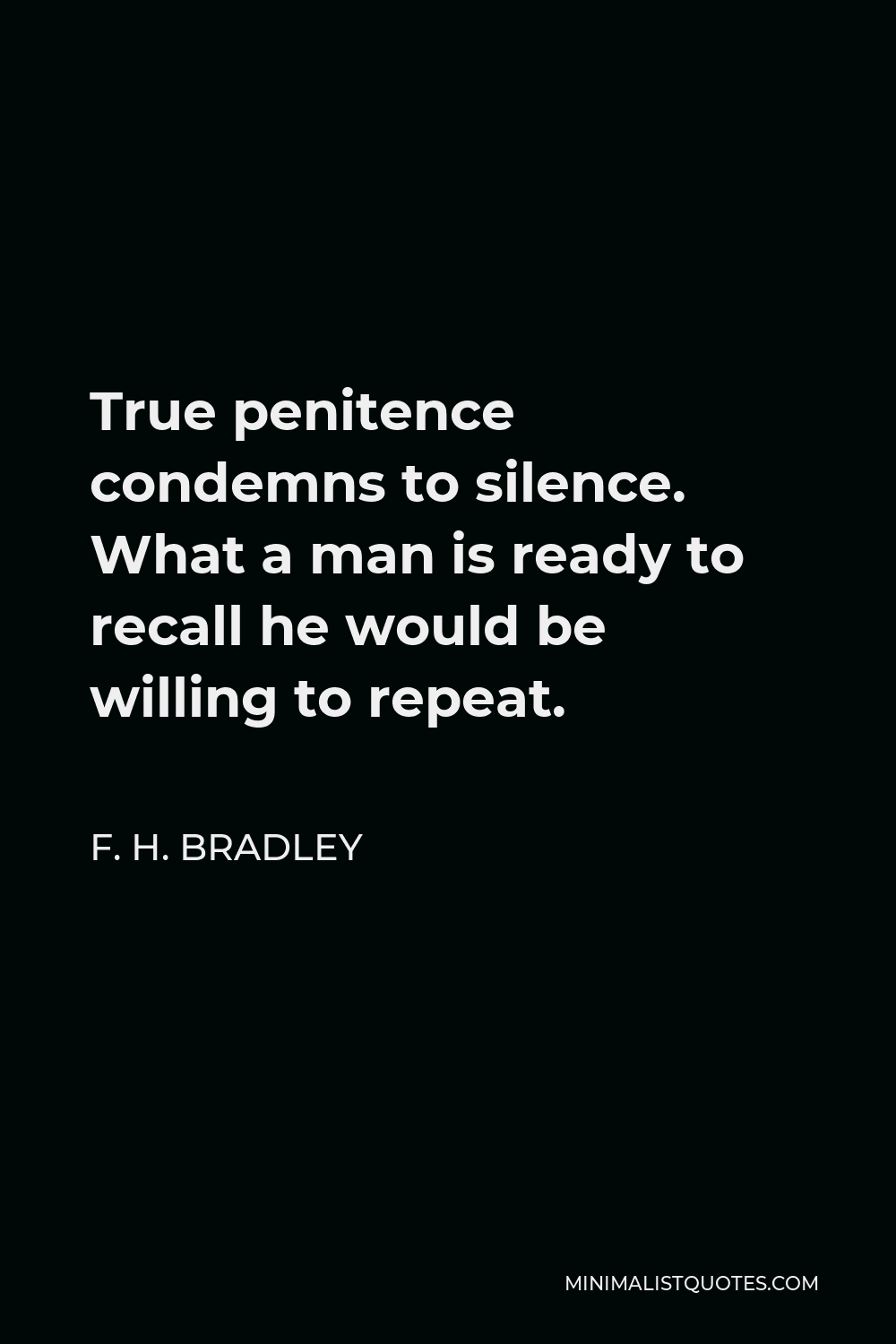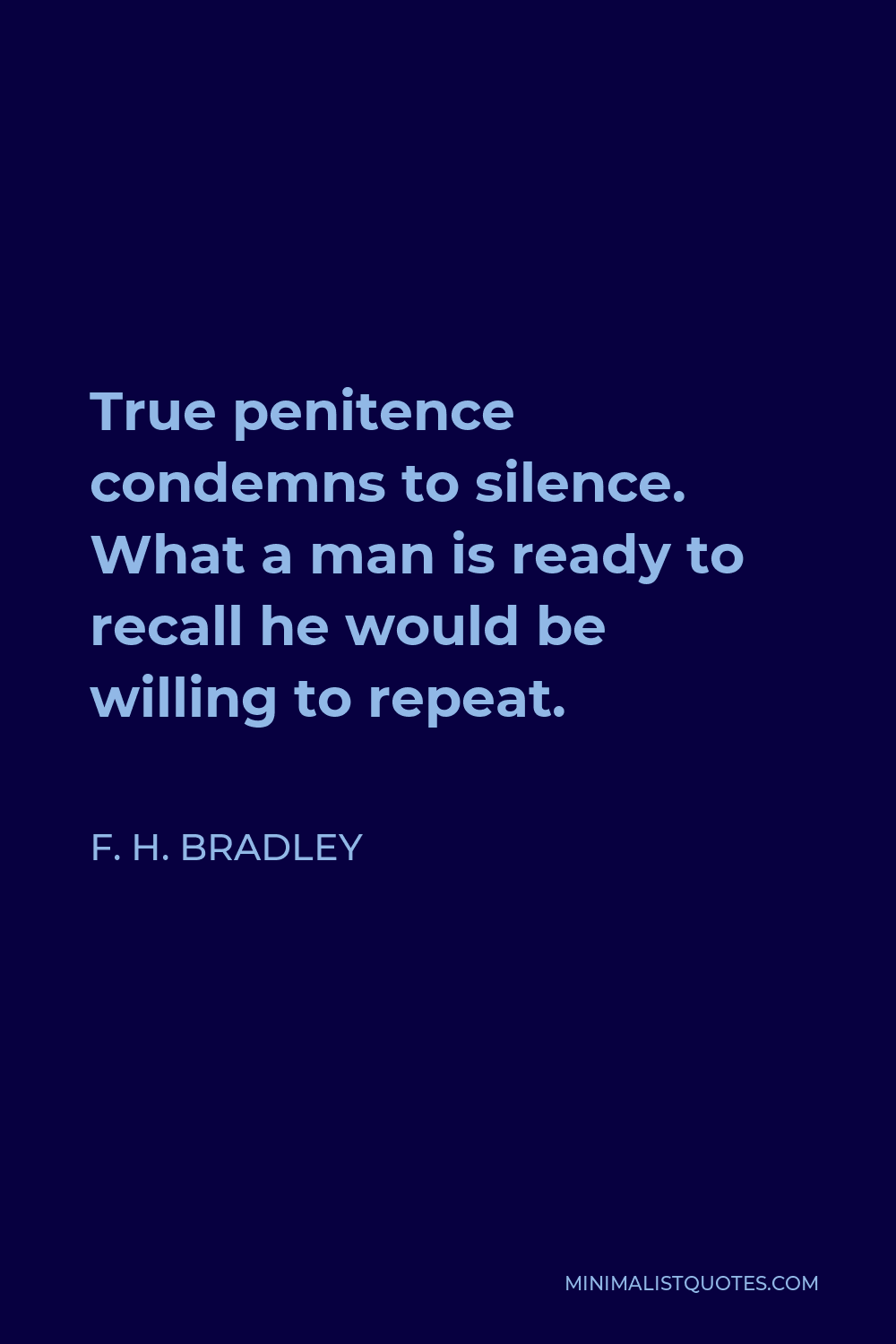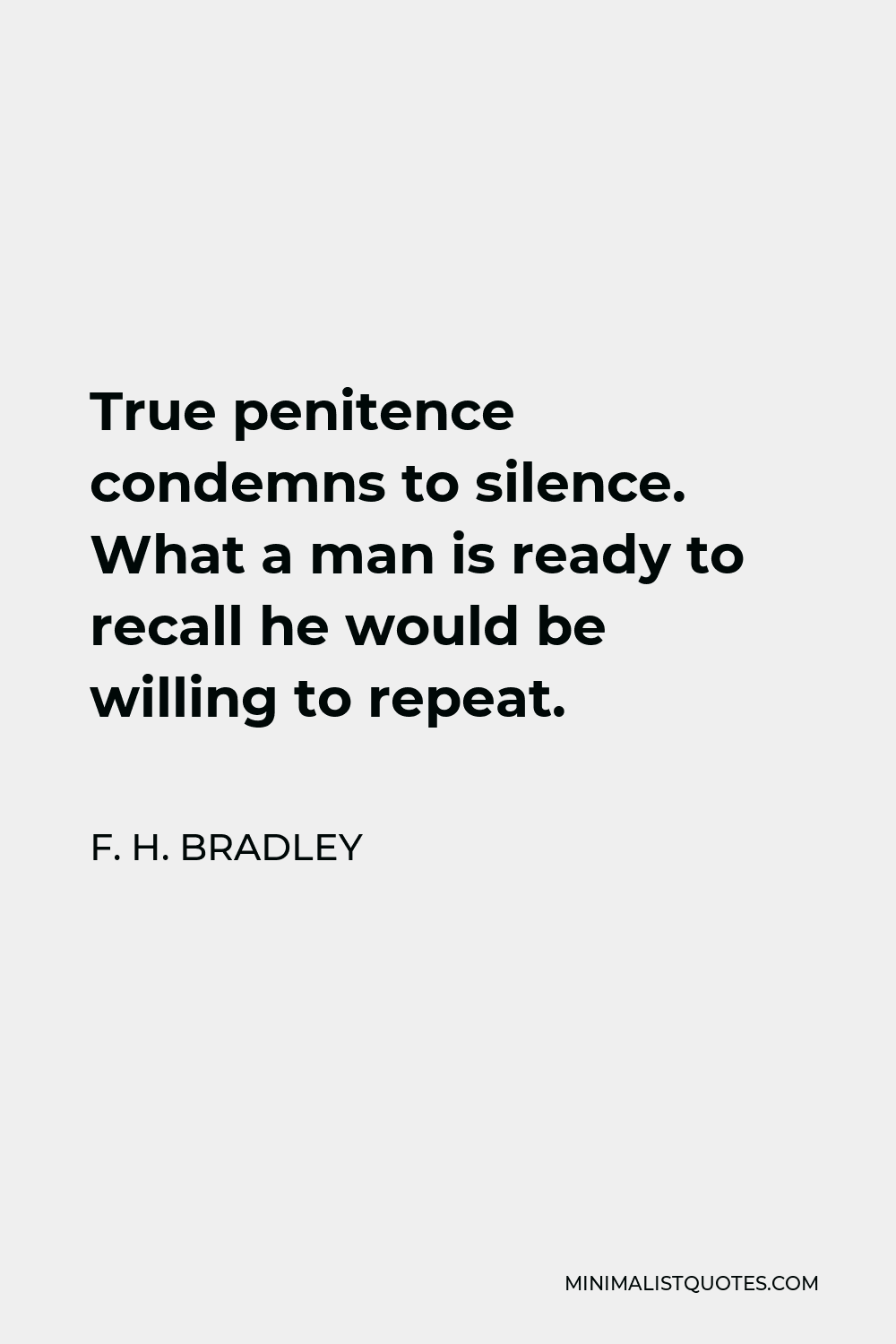We say that a girl with her doll anticipates the mother. It is more true, perhaps, that most mothers are still but children with playthings.
F. H. BRADLEYTrue penitence condemns to silence. What a man is ready to recall he would be willing to repeat.
More F. H. Bradley Quotes
-





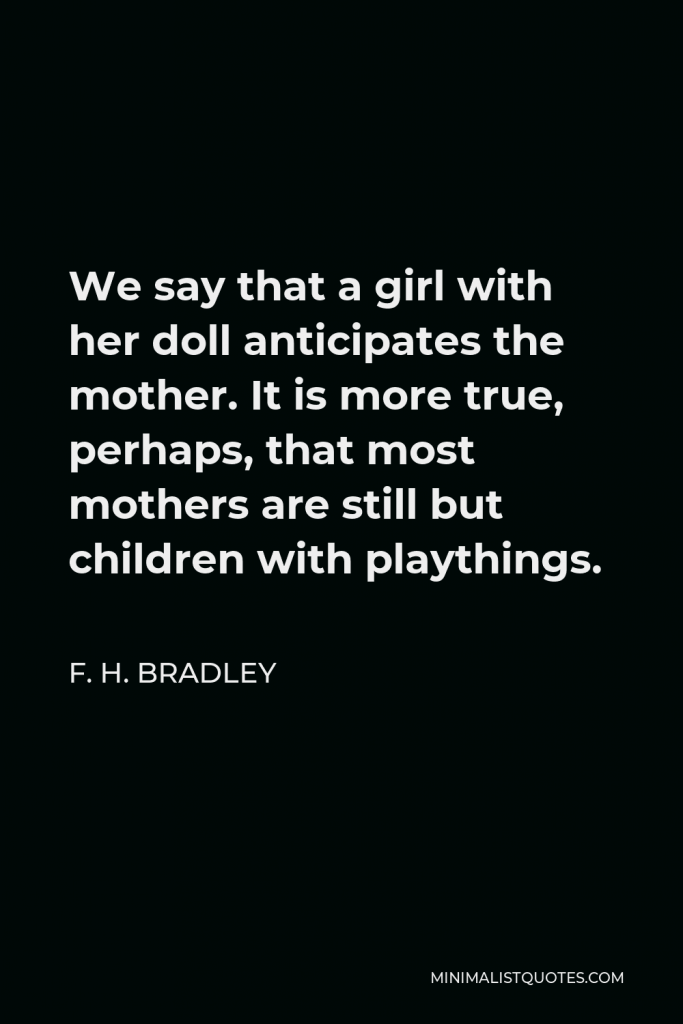

-





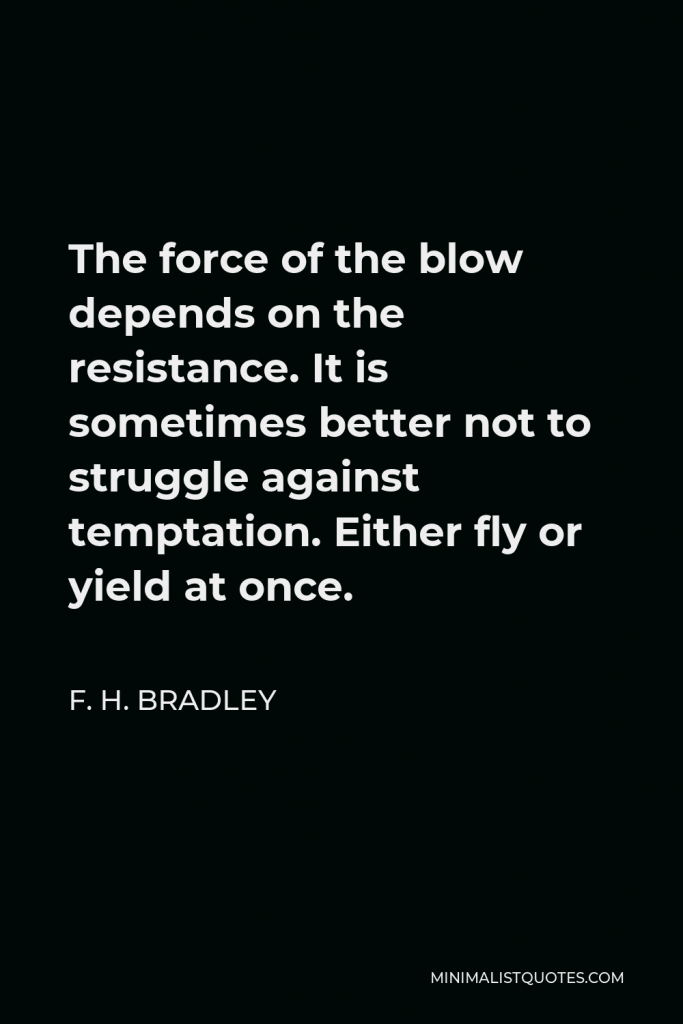

The force of the blow depends on the resistance. It is sometimes better not to struggle against temptation. Either fly or yield at once.
F. H. BRADLEY -





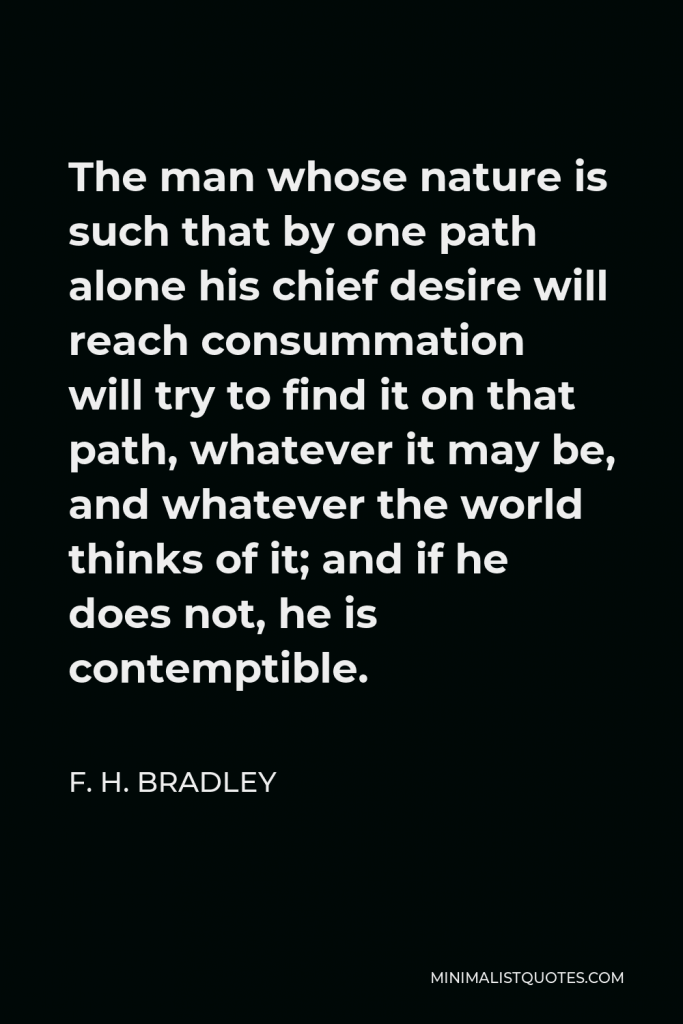

The man whose nature is such that by one path alone his chief desire will reach consummation will try to find it on that path, whatever it may be, and whatever the world thinks of it; and if he does not, he is contemptible.
F. H. BRADLEY -





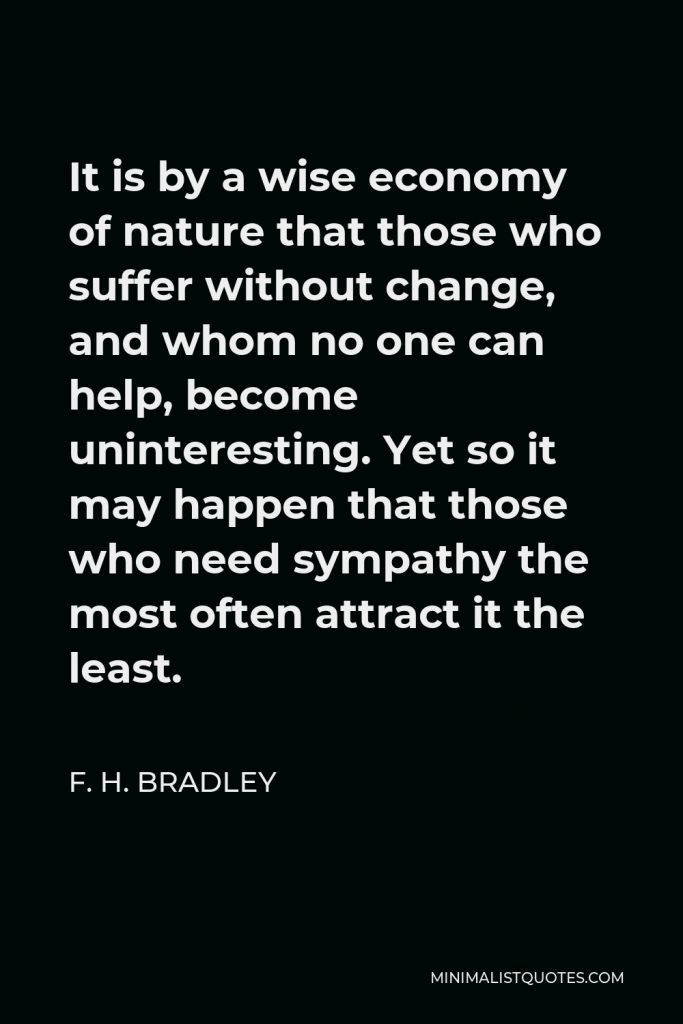

It is by a wise economy of nature that those who suffer without change, and whom no one can help, become uninteresting. Yet so it may happen that those who need sympathy the most often attract it the least.
F. H. BRADLEY -





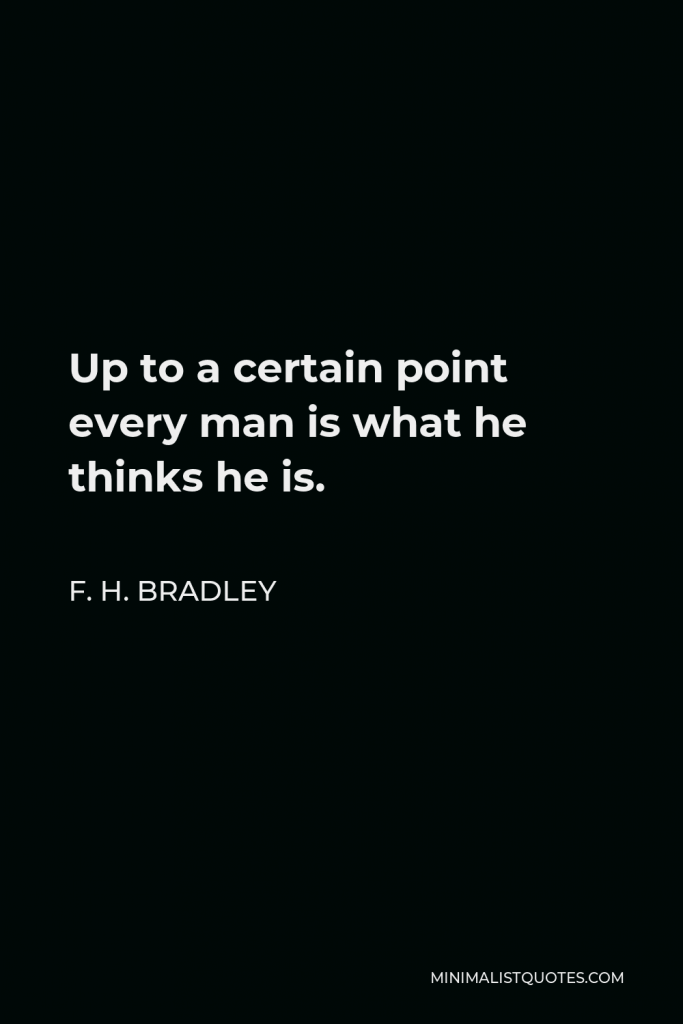

Up to a certain point every man is what he thinks he is.
F. H. BRADLEY -





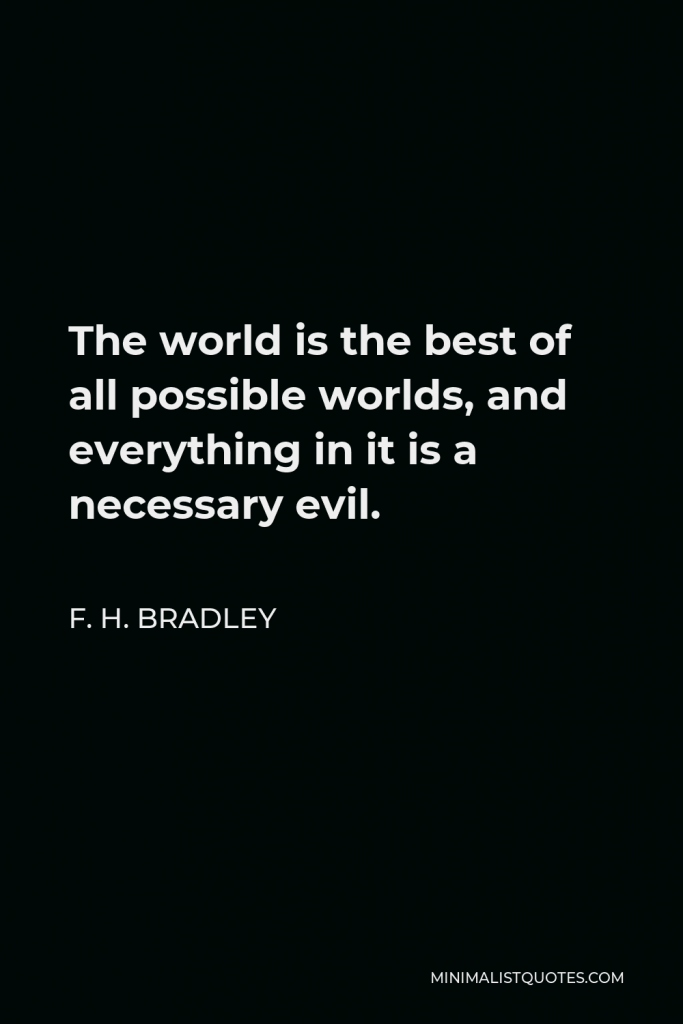

The world is the best of all possible worlds, and everything in it is a necessary evil.
F. H. BRADLEY -







The man who has ceased to fear has ceased to care.
F. H. BRADLEY -





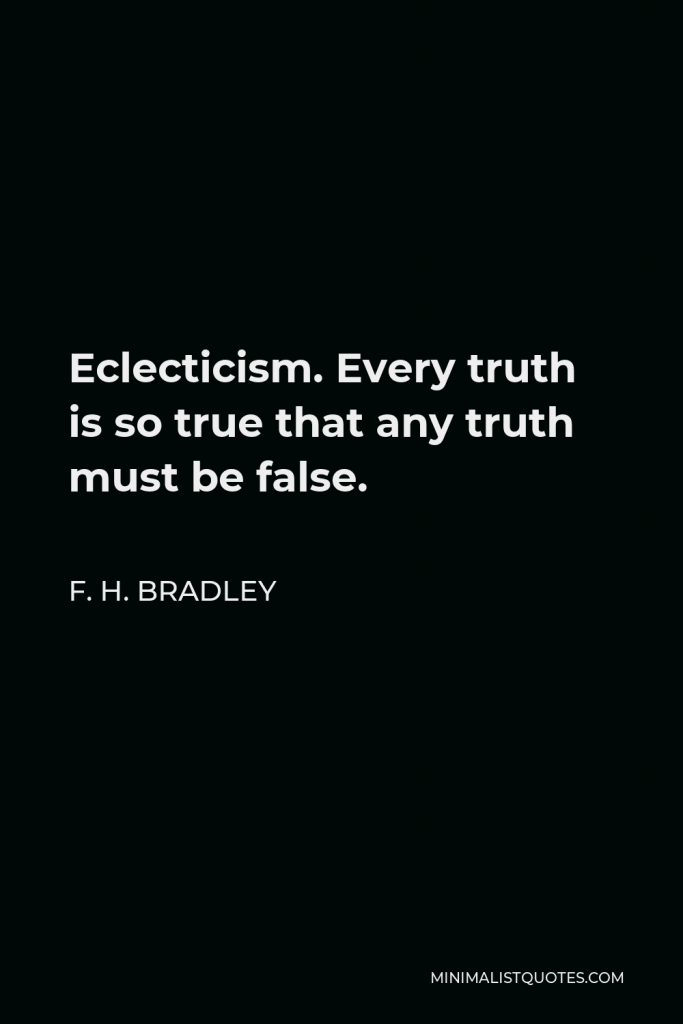

Eclecticism. Every truth is so true that any truth must be false.
F. H. BRADLEY -





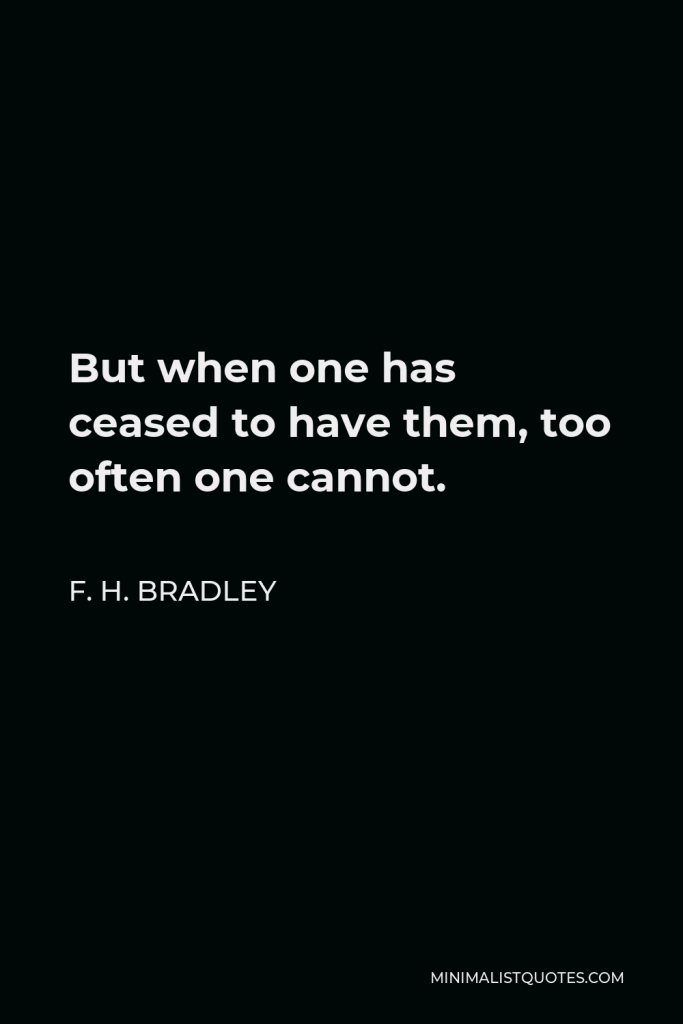

But when one has ceased to have them, too often one cannot.
F. H. BRADLEY -





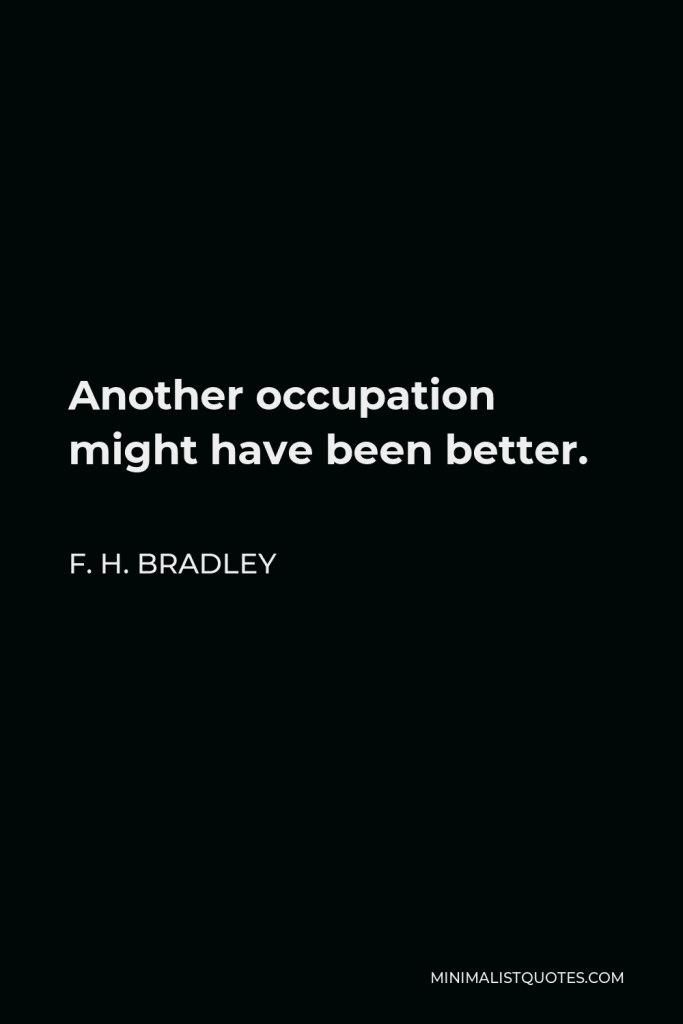

Another occupation might have been better.
F. H. BRADLEY -





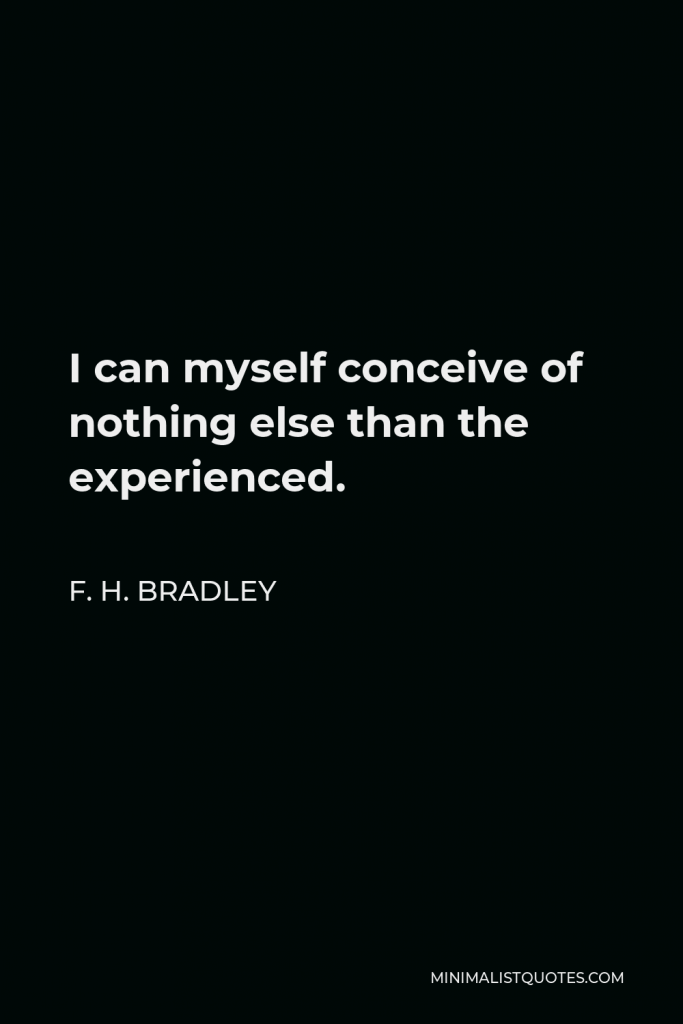

I can myself conceive of nothing else than the experienced.
F. H. BRADLEY -





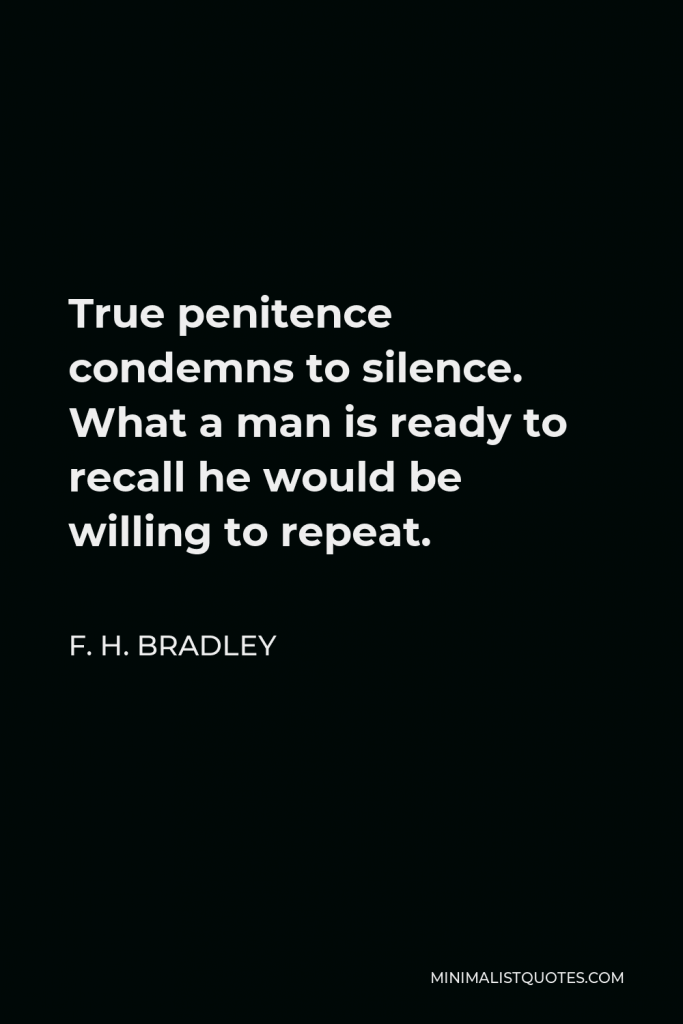

True penitence condemns to silence. What a man is ready to recall he would be willing to repeat.
F. H. BRADLEY -





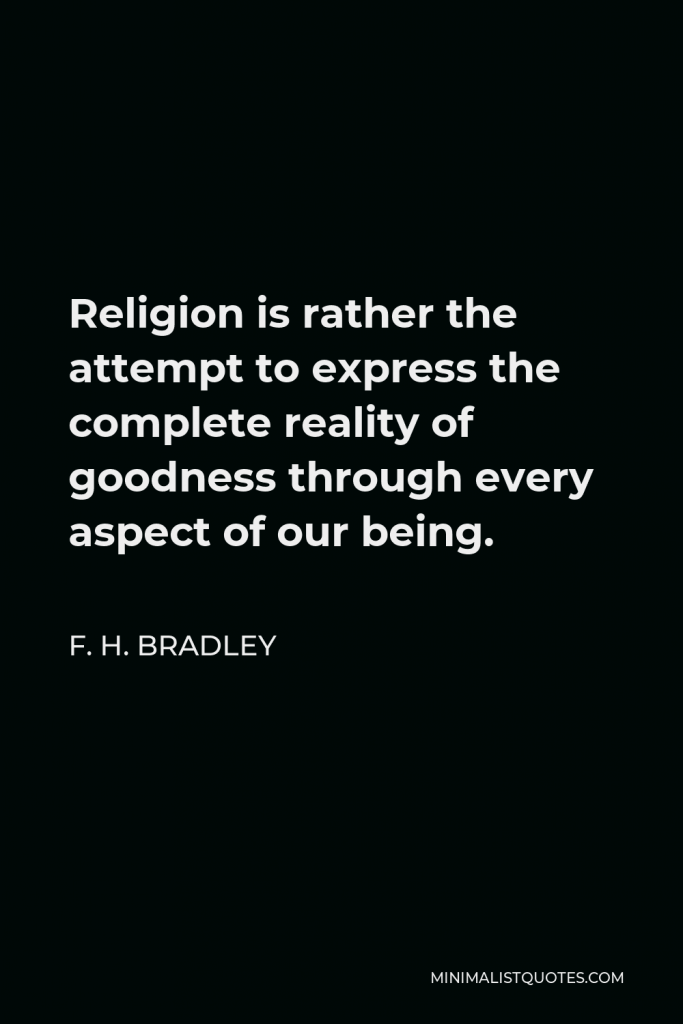

Religion is rather the attempt to express the complete reality of goodness through every aspect of our being.
F. H. BRADLEY -







The deadliest foe to virtue would be complete self-knowledge.
F. H. BRADLEY -







It is good to know what a man is, and also what the world takes him for. But you do not understand him until you have learnt how he understands himself.
F. H. BRADLEY -





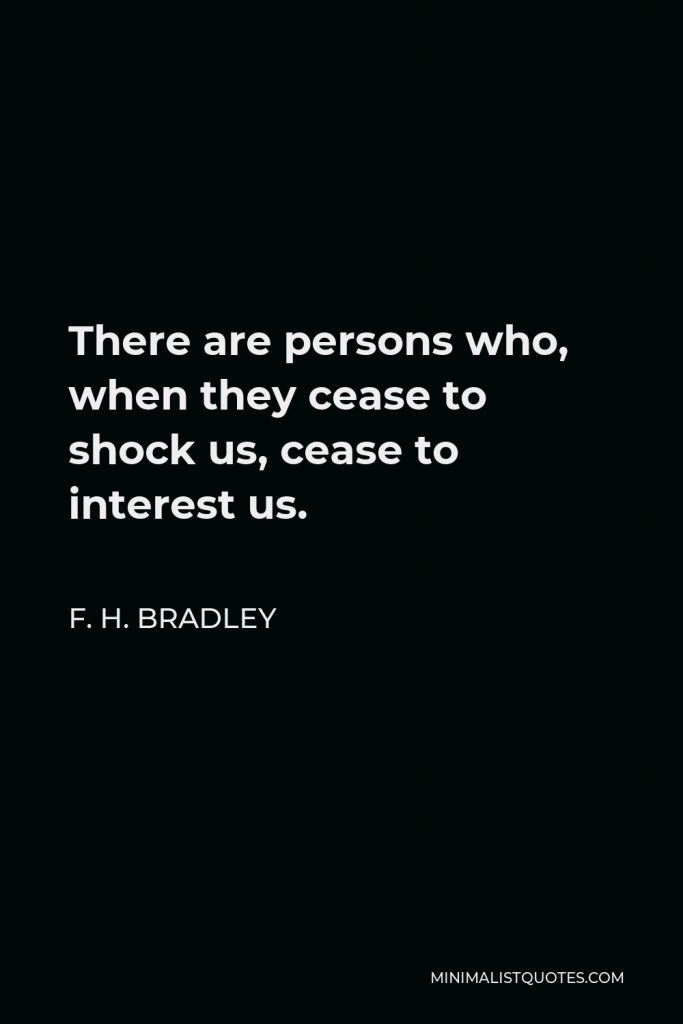

There are persons who, when they cease to shock us, cease to interest us.
F. H. BRADLEY
